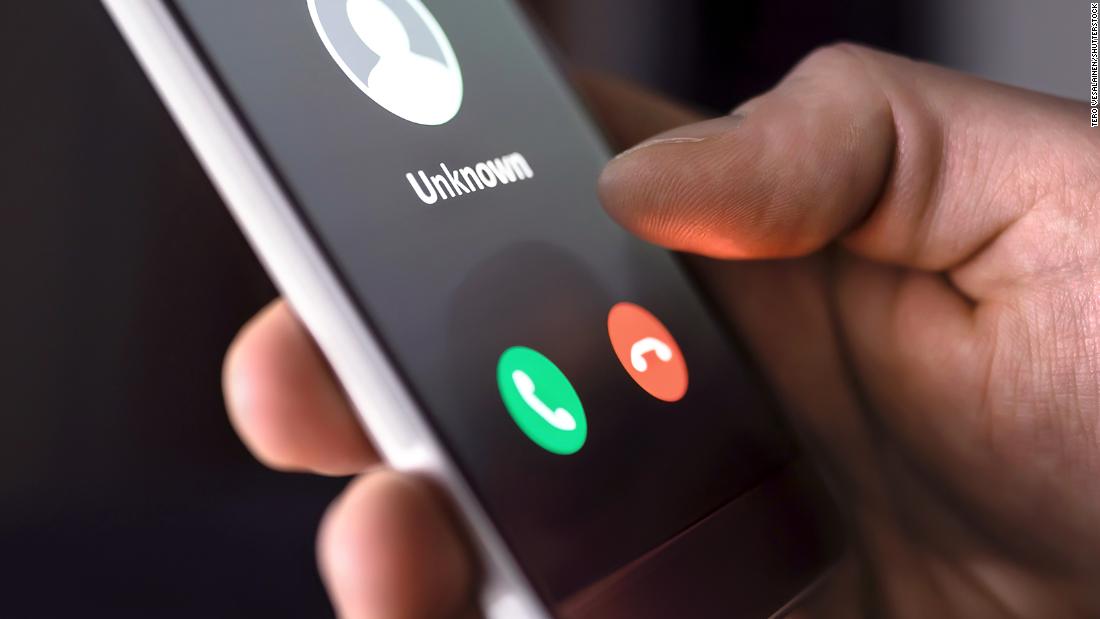The record-breaking penalty, announced Tuesday, is the largest proposed fine in FCC history. It targets Texas-based Rising Eagle for allegedly spamming consumers in more than a half-dozen states, including Arkansas, Indiana, Michigan, Missouri, North Carolina, Ohio and Texas. The calls, which took place in the first half of 2019, allegedly attempted to sell consumers fake, short-term health insurance plans from major insurance carriers such as Aetna and Cigna. Victims lured in by the alleged scam were then pitched policies from other providers that were Rising Eagle's clients, the FCC said.Following the proposed FCC fine, attorneys general for the seven states filed a lawsuit on Tuesday seeking damages, penalty, and an injunction against Rising Eagle, JSquared Telecom and two men accused of controlling both businesses.John C. Spiller, one of the men said to be behind Rising Eagle in the complaint, did not immediately respond to a request for comment. According to the FCC press release, Spiller admitted "that he knowingly called consumers on the Do Not Call list as he believed that it was more profitable to target these consumers," that "he made millions of calls per day, and that he was using spoofed numbers.""We are making it clear that scamming consumers and — as we saw in this case — tricking them into buying products under false pretenses cannot and will not go unchecked," said FCC Chairman Ajit Pai in a statement. "That is why the FCC and state officials are standing together and taking strong action to protect the American public from the scourge of spoofed robocalls."Tuesday's enforcement action is part of a wider US government crackdown on unwanted robocalls, after years of consumer complaints. According to YouMail, a spam filtering service that monitors robocall activity, nearly 20 billion robRead More – Source
The record-breaking penalty, announced Tuesday, is the largest proposed fine in FCC history. It targets Texas-based Rising Eagle for allegedly spamming consumers in more than a half-dozen states, including Arkansas, Indiana, Michigan, Missouri, North Carolina, Ohio and Texas. The calls, which took place in the first half of 2019, allegedly attempted to sell consumers fake, short-term health insurance plans from major insurance carriers such as Aetna and Cigna. Victims lured in by the alleged scam were then pitched policies from other providers that were Rising Eagle's clients, the FCC said.Following the proposed FCC fine, attorneys general for the seven states filed a lawsuit on Tuesday seeking damages, penalty, and an injunction against Rising Eagle, JSquared Telecom and two men accused of controlling both businesses.John C. Spiller, one of the men said to be behind Rising Eagle in the complaint, did not immediately respond to a request for comment. According to the FCC press release, Spiller admitted "that he knowingly called consumers on the Do Not Call list as he believed that it was more profitable to target these consumers," that "he made millions of calls per day, and that he was using spoofed numbers.""We are making it clear that scamming consumers and — as we saw in this case — tricking them into buying products under false pretenses cannot and will not go unchecked," said FCC Chairman Ajit Pai in a statement. "That is why the FCC and state officials are standing together and taking strong action to protect the American public from the scourge of spoofed robocalls."Tuesday's enforcement action is part of a wider US government crackdown on unwanted robocalls, after years of consumer complaints. According to YouMail, a spam filtering service that monitors robocall activity, nearly 20 billion robRead More – Source











